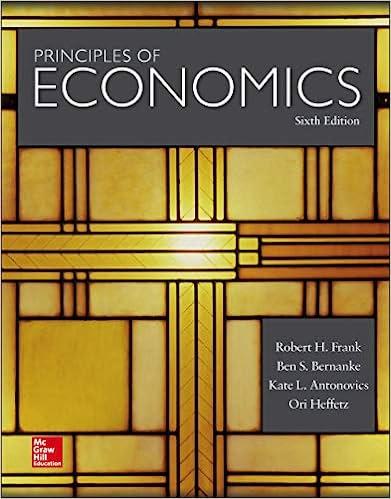In Locke's writings originates the first quantity theory of money, stating that the price level varies in the same direction as money supply. Is a change in the price level the only effect of a change in the supply of money in mercantilist thought? Refer to Cantillon'sEssay in the Nature of Commerce in General(Chapter VI Of an increase or decrease of hard money in a State, TWP pp.32-33) in your answer.
The Commercial Revolution / 33 diminishes of necessity the share of the other inhabitants of the State who do not participate at first in the wealth of the Mines in question. The altercations of the market, or the demand for Meat, Wine, Wool, etc., being more intense than usual, will not fail to raise their prices. These high prices will determine the Farmers to employ more land to produce them in another year: these same Farmers will profit by this rise of prices and will increase the expenditure of their Families like the others. Those then who suffer from the dearness and increased con- sumption will be first of all Landowners, during the term of their Leases, then their Domestic Servants and all the Workmen or fixed Wage-earners who support their families on their wages. All these must diminish their expenditure in proportion to the new consumption, which will compel a large number of them to emigrate or seek a living elsewhere. The Landowners will dis- miss many of them, and the rest will demand an increase of wages to enable them to live as before. It is thus, approximately, that a considerable increase in Money from the Mines increases consumption, and by diminishing the number of inhabitants entails a greater expense among those who remain. ..." I will not pursue further this extraordinary analysis, so far ahead of its time, but let me quote one last Cantillonian bit. Here he speaks of the consequences of an increase in the supply of money: I conclude that by doubling the quantity of money in a State the prices of products and merchandise are not always doubled. A River which runs and winds about in its bed will not flow with double the speed when the amount of water is doubled.... The proportion of the dearness which the increased quantity of money brings about in the State will depend on the turn which the money will give to consumption and circulation. .. . It will be directed more or less to certain products or merchandise according to the idea of those who acquire the money. Market "Higgs, pp. 159, 161, 163, 165.32 / TEACHINGS FROM THE WORLDLY PHILOSOPHY the actual market Prices; and that in general these prices do no vary much from the intrinsic value. Chapter VI Of the increase and decrease in the quantity of hard money in a State If mines of gold or silver be found in a State and considerable quantities of minerals drawn from them, the Proprietor of these Mines, the Undertakers,* and all those who work there, will not fail to increase their expenses in proportion to the wealth and profit they make: they will have over and above what they need to spend. All this money, whether lent or spent, will enter into circula- tion and will not fail to raise the price of products and merchan- dise in all the channels of circulation which it enters. Increased money will bring about increased expenditure and this will cause an increase in Market prices in the highest years of exchange and gradually in the lowest. ... Mr. Locke lays it down as a fundamental maxim that the quan- tity of produce and merchandise in proportion to the quantity of money serves as the regulator of Market price ...; but he has not considered how it does so. .. . I may therefore venture to offer a few observations on the subject, even though I may not be able to give an account which is exact and precise. If the increase in actual money comes from Mines or gold or silver in the State the Owner of these Mines, the Adventurers, the Smelters, Refiners, and all other workers will increase their expenses in proportion to their gains. They will consume in their households more Meat, Wine, or Beer than before, will accustom themselves to wear better cloaths, finer linen, to have better fur- nished Houses and other choicer commodities. They will conse- quently give employment to several Mechanicks who had not so much to do before and who for the same reason will increase their expenses: all this increase in Meat, Wine, Wool, etc. .. . 89. *We might note that this is the first use of the term entrepreneur: see Higgs, pp. 388








